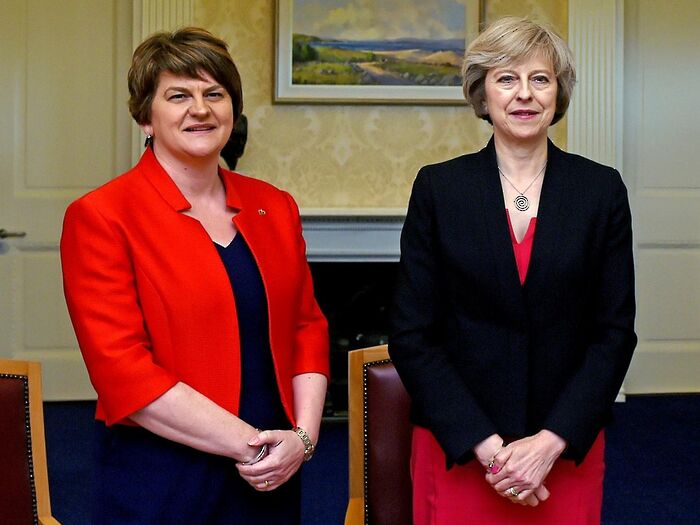‘Voters have got to start winning’, says Electoral Reform Society head
Darren Hughes, Chief Executive of the oldest electoral reform society in the world, speaks to Noah Froud about why British democracy needs to change

Darren Hughes, a former Labour MP and minister in New Zealand, heads up the Electoral Reform Society. It is the oldest electoral reform group in the world. Having been founded in 1884, Hughes is part of its 133 year-old history of campaigning on the “very simple principle that seats in the House of Commons should match votes in the country.”
While this is the guiding principle of the Society, Single Transferable Vote (STV) is their preferred alternative compared to the current system of First Past the Post. Currently, Members of Parliament are elected in a ‘winner takes all’ system in which the candidate with the most votes in each constituency are elected. For Hughes this means that a massive amount of votes in so-called ‘safe seats’ don’t contribute to the result in terms of the overall number of MPs. In fact, some seats have been occupied by one party since Queen Victoria sat on the throne.
The change wouldn’t simply lead to a system of completely proportional representation. “One of the things that people often say is that they want to maintain a constituency link. So, they like the idea of proportionality and the key principle of seats matching votes but they don’t want to give up on the idea that there’s at least one person or in the case of STV, a team of people, who are looking out for their local geographic area.”
The proposed STV alternative would function with much larger consistencies than currently exist, with the area shared by a group of representatives, each of which is ranked by voters in order of preference at the election.
“You wouldn’t have situations like in Richmond Park in London, where there was an 80% turnout, a very active community and the Conservative candidate beats the Liberal Democrat candidate by 45 votes, and all those Liberal Democrat voters go unrepresented”
“You cannot back change because you want it to affect a particular election”
Whilst the Society is a “democratic organisation”, Hughes doesn’t necessarily view referenda as the right way towards more democratic politics. The UK is simply not used to referenda, having only ever had three UK-wide ones. Hughes sees the EU referendum as particularly faulty because of the short time in which the campaign was conducted, which “didn’t give time for it to move beyond the personalities.”
This wasn’t the case with the Scottish Independence Referendum in 2014, where voters had two years to engage with the issue. “It gave voters the breathing space to hear the arguments, think about them, reflect on them, tease them out.”
This was not the case with the EU referendum. “There was no time for any of that, and it’s how you ended up with one side saying it’ll be a disaster if we leave and the other side saying it’ll be £350 million pounds for the NHS per week if we leave.”
“You’ve got to have it in a way that gives citizens the chance to talk and really work it through. Otherwise you end up in the celebrity side of things, ‘blue on blue’, Boris versus Cameron sort of stuff, which is interesting to the political class but it’s not really relevant to the ordinary citizen.”
I ask Hughes whether his background in progressive clashes with the aim of the electoral reform. UKIP, which is surely everything he has previously stood against, won 4 million votes in 2015 but only returned one MP. Had the election been held under a more proportional system, the influence of right-wing politics would have increased.
But Hughes is resolute. “You cannot back change because you want it to affect a particular election or a certain result; it’s got to be about change across the generations, and it’s just not right that 4 million people only got one MP.”
“With every passing democratic event, the inadequacy and the integrity of our current arrangements are showing themselves to be bare”
“To deny representation to that many people means that people find another way of venting their views, and it may well be that a lot of people who voted for Brexit were among those four million who didn’t feel like anyone was listening to them at Westminster. If you’re interested in progressive causes you might be doing a little dance and saying, ‘isn’t it wonderful that four million people missed out on representation’. Well, the following year they found a way to come back with a baseball bat and made sure their voice was heard.”
Finally, I ask whether the push for electoral reform is running out of steam. In 2011, the Society was defeated in the referendum on changing the electoral system to AV - a halfway house between First Past the Post and STV. In June, Labour and the Conservatives gained over 80% of the national vote, which weakens the argument that reform is needed to account for the vote of parties like the Liberal Democrats, Greens and UKIP. Lastly, with the apparently massive divisions in the country in the wake of the Brexit referendum, it looks like any kind of move to a more proportional, more consensus-based politics is very distant.
Hughes contests that the opposite is the case. “I think that with every passing democratic event, the inadequacy and the integrity of our current arrangements are showing themselves to be bare. For the first time in decades the two main parties got over 80% of the vote and both still lost!”
With the trends in British politics including the amount of anger and tactical voting, “having a two party, winner-takes-all, geography-only, voting system is just not going to give British democracy the room it needs to breathe.
“More importantly, voters have got to start winning out of this. You’ve got 22 million voters who didn’t have their vote contribute to the overall outcome. The worst case scenario is that people just disengage even more and that’s got to be worse than trying out a new way of doing things.”
 News / Uni Scout and Guide Club affirms trans inclusion 12 December 2025
News / Uni Scout and Guide Club affirms trans inclusion 12 December 2025 News / Pembroke to convert listed office building into accom9 December 2025
News / Pembroke to convert listed office building into accom9 December 2025 Features / Searching for community in queer Cambridge10 December 2025
Features / Searching for community in queer Cambridge10 December 2025 News / Uni redundancy consultation ‘falls short of legal duties’, unions say6 December 2025
News / Uni redundancy consultation ‘falls short of legal duties’, unions say6 December 2025 News / Gov declares £31m bus investment for Cambridge8 December 2025
News / Gov declares £31m bus investment for Cambridge8 December 2025









